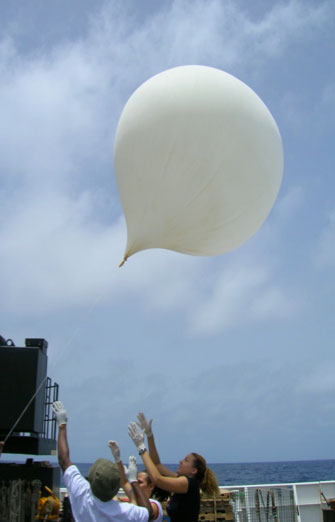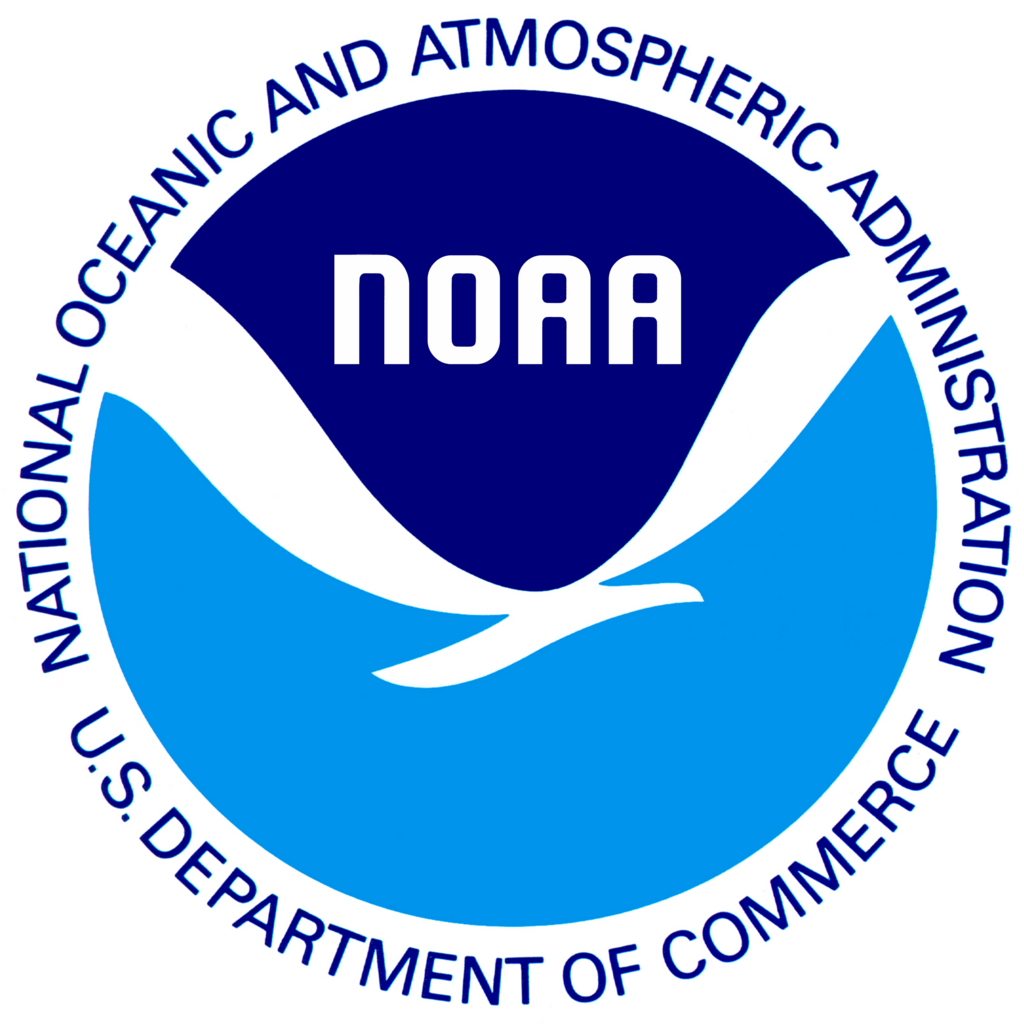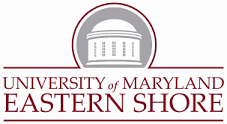Call for Abstracts
NOAA EPP 7th Biennial Education and Science Forum
‘‘Developing a Premier Future STEM Workforce to Support Environmental Sustainability”
 Sponsors: National Oceanic and Atmospheric Administration & University of Maryland Eastern Shore
Sponsors: National Oceanic and Atmospheric Administration & University of Maryland Eastern Shore
Host: NOAA Living Marine Resources Cooperative Science Center
October 26-29, 2014
Deadline for Receipt of Abstracts: September 12, 2014
Submission Opens: July 14, 2014
Noted Prerequisite: You must be a registered attendee of the NOAA EPP Biennial Education and Science Forum to submit an Abstract.
You are invited to submit abstracts in areas aligned with the four long term goals listed in the NOAA’s Next Generation Strategic Plan (see: http://www.ppi.noaa.gov/ngsp/goals/). NOAA supports an informed society in weather, climate, oceans, environmental observations, management and stewardship.
‘‘Developing a Premier Future STEM Workforce to Support Environmental Sustainability” is the theme for this Forum. Abstracts are being accepted for oral and poster presentations at the NOAA Office of Education Educational Partnership Program (EPP) 7th Biennial Education and Science Forum. The NOAA EPP 7th Biennial Education and Science Forum is a venue to exchange results of collaborative research between NOAA and the academic community and discuss new engagement opportunities with NOAA scientists, academia, private and public sectors. The Forum will also highlight a wide array of professional careers in the public, private and academic sectors for future STEM graduates.
NOAA Long-term Goals:
- Climate Adaptation and Mitigation
- Weather-Ready Nation
- Healthy Oceans
- Resilient Coastal Communities and Economies
The concurrent technical sessions for the Forum will be multidisciplinary, integrative, and NOAA relevant. The importance of innovation and research-and-development in developing the globally competitive future workforce will be stressed. The primary goal of the Educational Partnership Program is to increase the number of students from underrepresented communities who are educated, trained and graduated in fields that directly support NOAA’s mission. Education and training the future STEM workforce will therefore be a cross-cutting theme for all technical sessions.
It is estimated that the conference will allow for 72 student oral presentations and 100 student posters in addition to presentations by professionals from academia, federal and state governments, and the private sector and non- governmental organizations. Presentations are expected in areas such as: ecosystem approaches to management; wetlands, and ocean research and management; graduate science, technology enhancement, engineering, education, weather, hydrology and watershed management; remote sensing and satellite technologies; climate and global change; environmental education, literacy and policy.
Technical Session Information:
Information about preparation of abstracts for each of the four (4) concurrent technical sessions and contact information for session conveners is provided. Abstract submission and specification guidelines are provided under ‘Instructions for Abstract Submission’.
- Climate Adaptation and Mitigation
- Weather-Ready Nation
- Healthy Oceans
- Resilient Coastal Communities and Economies
1. Climate Change: Causes, Impacts, and Strategies
Abstracts for oral and poster presentations are sought for studies addressing Earth’s changing climate. The International Governmental Panel on Climate Change has projected shifts in temperature, precipitation, and sea- level during the next century that will require mitigation or adaptation of human activities. Abstracts for this session may address topics from a broad range of climate change science such as: (1) deciphering past and projecting future climate change, (2) causes and impacts of climate change, (3) mitigation and adaptation strategies and the science and monitoring needs to formulate and support the implementation of such strategies, and (4) increasing public knowledge of climate change and its impacts. Abstracts are solicited for education and training of the future STEM workforce in areas that focus on student recruitment, learning and development for future career opportunities in support of climate adaptation and mitigation.
For additional information on the Climate Change session, please contact any of the following:
- Reza Khanbilvardi (Chair), email: [email protected]
- Roy Armstrong (Co-Chair), email: [email protected]
2. Weather-Ready Nation
Abstracts for oral and poster presentations are sought for studies addressing the topic area “Weather-Ready Nation.” Under the tab for Weather-Ready Nation on the NOAA website goals page noted above, NOAA suggests a variety of subtopics that are embraced by this Call for Abstracts. In addition, the Weather-Ready Nation organizing group has identified, a number of possible topic areas. These include, but are not limited to: improving the precision of weather and water forecasts and effective communication of risk to local authorities, integrating weather prediction (both long-term and short-term) into improved decision support systems, employing innovative science and technological solutions in weather and climate applications, strengthening joint partnerships that enhance community preparedness for severe weather, and using impact-based decision support to minimize economic loss and property damage from severe weather. Abstracts may also focus on environmental quality of the air and water and their health and economic linkages, particularly as they are influenced by atmospheric and oceanic events. Similarly, topics also can focus on the economic benefits from increased efficiencies in water usage in the transportation, hydropower, and agriculture sectors. Abstracts are solicited for education and training of the future STEM workforce in areas that focus on student recruitment, learning and development for future career opportunities in support of a weather-ready nation.
For additional information on the Weather-Ready Nation session, please contact any of the following:
- Vernon Morris (Chair), email: [email protected]
- Thomas Gill (Co-Chair), email: [email protected]
3. Healthy Oceans for the 21rst Century
Abstracts for oral and poster presentations are sought for studies addressing the topic Healthy Oceans for the 21st Century. Presentations should focus on the objectives identified as priorities by NOAA including: Improved understanding of ecosystems to inform resource management decisions, recovered and healthy marine and coastal species, healthy habitats that sustain resilient and thriving marine resources and communities, and sustainable fisheries and safe seafood for healthy populations and vibrant communities. Appropriate areas for this call include, but are not limited to: marine ecology, fisheries science, conservation biology, aquaculture, ecotoxicology, ecosystem assessment and management, habitat preservation, socioeconomic analyses and indicators, microbial and biogeochemical processes, assessment of anthropogenic stressors, climate change impacts, and human health issues related to healthy marine and coastal systems. Abstracts are solicited for education and training of the future STEM workforce in areas that focus on student recruitment, learning and development for future career opportunities in support of healthy oceans.
For additional information regarding abstract submission to the Healthy Oceans for the 21st Century session please contact any of the following:
- Bradley Stevens (Chair), email: [email protected]
- Jessica Miller (Co-Chair), email: [email protected]
4. Resilient Coastal Communities and Economies
Abstracts for oral and poster presentations are sought for studies addressing the topic area Resilient Coastal Communities and Economies. Presentations in this session may focus on how coastal communities are adapting to the impacts of hazards and climate change to become more resilient. Abstracts for this session may include but are not limited to: coastal and marine zone management and planning, marine transportation, coastal water quality and human health impacts, coastal and marine ecosystem services, Arctic access and resource management issues, coastal population dynamics, green infrastructure, and other coastal and marine human dimension and policy related issues. Abstracts are solicited for education and training of the future STEM workforce in areas that focus on student recruitment, learning and development for future career opportunities in support of resilient coastal communities and economies.
For additional information on this session on resilient coastal communities and economies please contact any of the following:
- Michael Abazinge (Chair), email: [email protected]
- Charles Jagoe (Co-Chair), email: [email protected]
Student Information
Funds are available for registration, travel and lodging expenses for students who have been selected to give a presentation. To be eligible for a travel award, an abstract must be submitted by September 12, 2014, 5:00 pm EST and accepted for presentation. LATE SUBMISSIONS WILL NOT BE ACCEPTED. Only students who are not supported by one of the NOAA Cooperative Science Centers are eligible to apply. Notification of an award will be made by September 23, 2014. Once all the abstracts have been reviewed and accepted, the winners of the student travel awards will be notified. Arrangements for hotel rooms, airfare and travel to and from the airports must be done through UMES travel support in order to receive reimbursement through the travel award. Instructions on how to contact UMES Travel will be issued at the time of the award announcement.
APPLY TODAY
Student Presentation Awards
A student award ceremony will be held Wednesday, 29 October 2014. An Award for 1st, 2nd, and 3rd place respectively will be given to both undergraduate and graduate students for best oral and poster presentations. Students do not need to be present to win an award.

